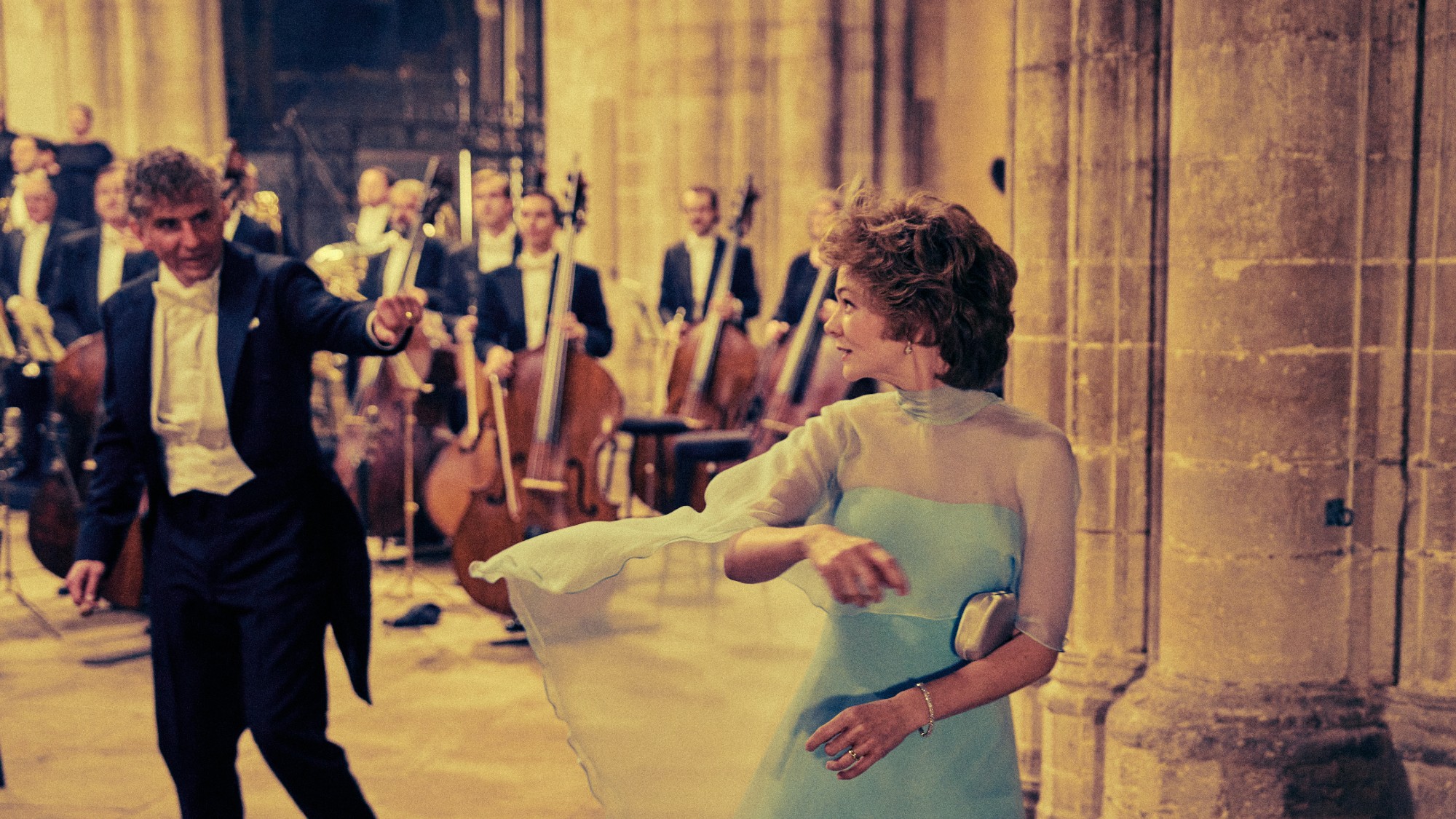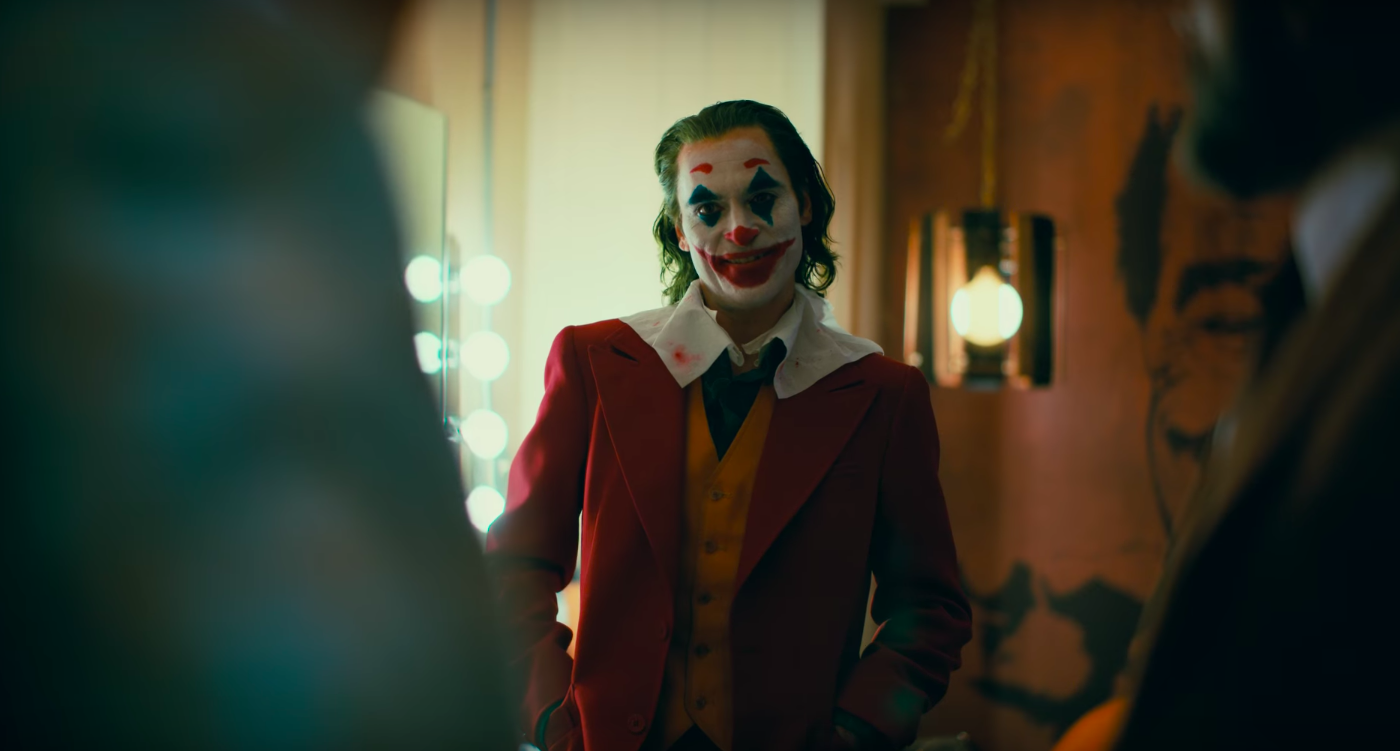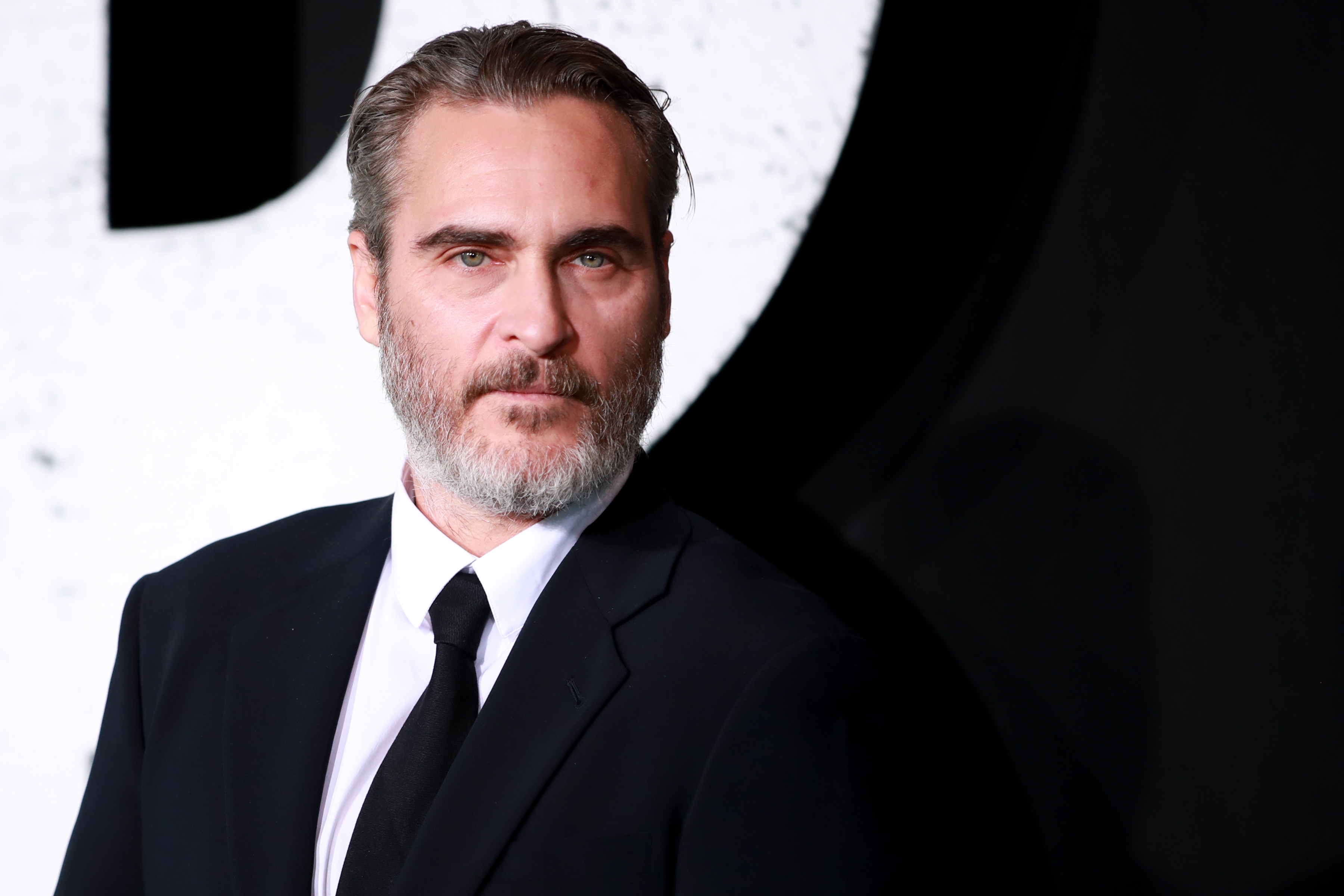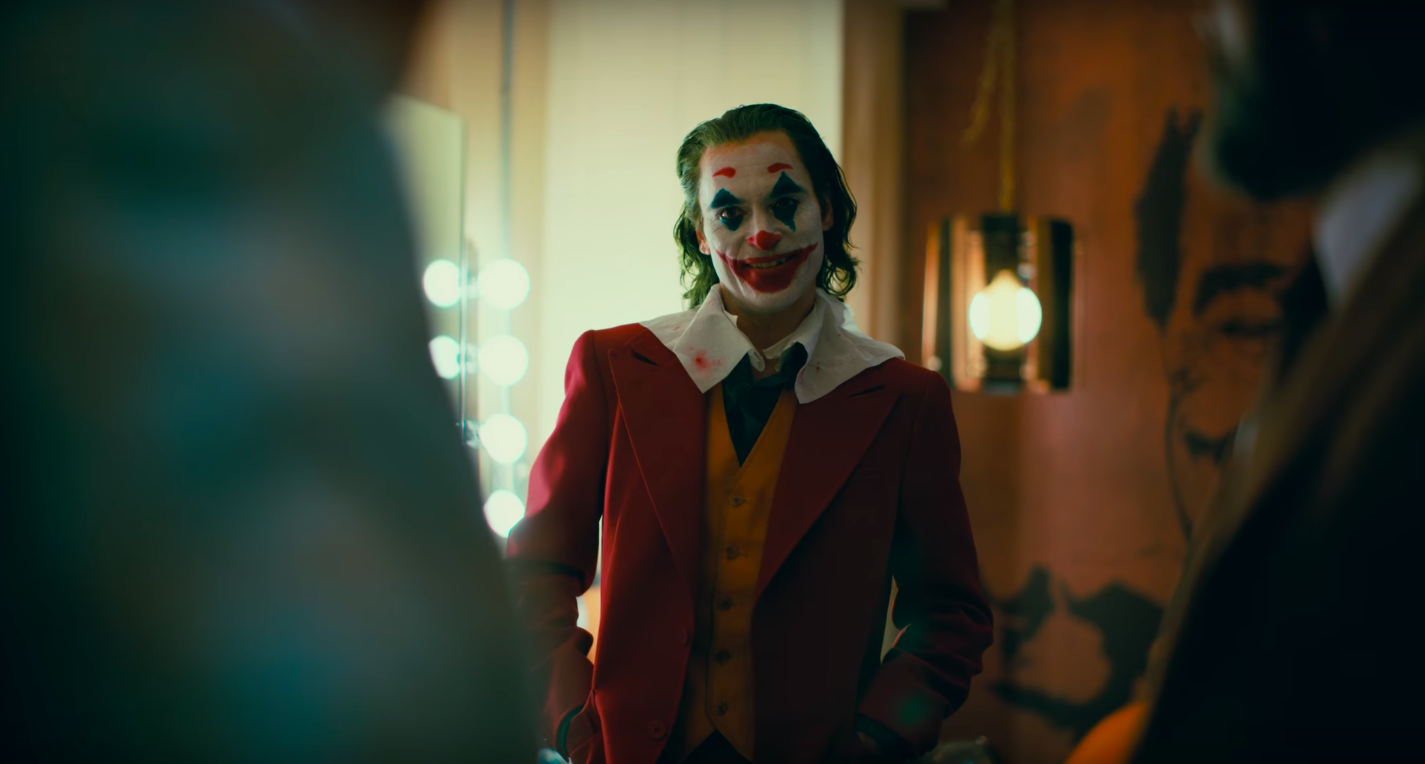Joaquin Phoenix's Joker struggles in the shadow of the actors who came before him
The Batman villain has become an iconic role — and that's the challenge


A free daily email with the biggest news stories of the day – and the best features from TheWeek.com
You are now subscribed
Your newsletter sign-up was successful
The news that Joaquin Phoenix would play Batman's anarchic arch-nemesis the Joker was initially treated with some measure of surprise. After all, Phoenix is one of the most talented actors of his generation, who has previously teamed up with filmmakers Paul Thomas Anderson (The Master; Inherent Vice), Lynne Ramsay (You Were Never Really Here), and Spike Jonze (Her), among others, usually to perform symphonies of heartbreak and hurt. He seems decidedly uninterested in the mechanisms of big Hollywood franchise movies. But that surprise over Phoenix doing the new Joker should be mitigated by the fact that the Joker has, over the past 30 years, become a role of considerable prestige.
The Joker's white face and green hair had graced screens before 1989; Cesar Romero played the Clown Prince of Crime memorably on the campy Batman TV show in the 1960s, which included a feature-film spinoff in 1966. But after a number of comic overhauls, the character was really reborn on-screen in the visage of Jack Nicholson for Tim Burton's Batman — where the legendary actor, in the tradition of Gene Hackman in the first Superman film, was actually billed above the guy playing the superhero (Michael Keaton).
Nicholson gets all the best, most indelible lines in Burton's film: "Wait 'til they get a load of me" and "where does he get those wonderful toys?" are a lot more colorful than Keaton's terse "I'm Batman." It's Keaton, though, who does more interesting work in the film, while Nicholson remodels the Joker explicitly in the freewheeling, showboating image of an archetypal Jack performance — a collective caricature of Nicholsonian moments. It's a self-impression with a lot of entertainment value, and even some thematic resonance for the character, who does view his criminality as performance, after all. But the character's transformation from surly, murderous gangster to giddy, murderous crime boss doesn't have much pathos, or mystery.
The Week
Escape your echo chamber. Get the facts behind the news, plus analysis from multiple perspectives.

Sign up for The Week's Free Newsletters
From our morning news briefing to a weekly Good News Newsletter, get the best of The Week delivered directly to your inbox.
From our morning news briefing to a weekly Good News Newsletter, get the best of The Week delivered directly to your inbox.
That sense of mystery feels more lacking in retrospect, following Heath Ledger's performance in Christopher Nolan's The Dark Knight (2008). Ledger's Joker appears seemingly out of nowhere to take over the Gotham City underworld; his origin itself is only understood as an extension of his theatricality, as he tells conflicting stories explaining the permanent smile that's been carved around his lips ("wanna know how I got these scars?"). These moments pull off a neat trick, parodying contemporary comic-book grittiness while still painting a chilling portrait of a devious mind at work. Ledger's vaguely nerdy voice and physicality have a similarly contradictory effect. His Joker is prone to both wild improvisations and elaborate planning, and it's not always easy to discern between a meticulous Plan A and a thrown-together Plan B.
Ledger's brilliant work added a posthumous Oscar to Nicholson's enormous payday, which together turned the Joker into the kind of showcase part actors take as a superstar victory lap. Jared Leto stumbled right out of the gate for his brief appearance in Suicide Squad, tripping over the role's iconography. The movie labors to present a visually distinct Joker, while Leto hams around in search of a real character, and inexplicably lands on an imitation of Ledger's nasal, insinuating Joker voice. As easy as it is to mock Leto's hubris, it hints at a broader problem with playing this character: How to make the Joker feel fresh without imitating the tics and mannerisms of other actors?
Even an actor as gifted as Joaquin Phoenix struggles with this. Todd Phillips' new Joker is a vastly more focused, disciplined undertaking than something like Suicide Squad, with a committed and often mesmerizing performance from Phoenix. Yet it still often feels more like a composite of influences than a real original. Phillips has spoken of his desire to smuggle a '70s-style character study into a comic-book movie, which doesn't fully square with how he has (consciously or not) made a Joker movie with considerable resemblance to the 1988 graphic novel The Killing Joke. That book offers a more tragic origin for the character, albeit one specifically described by the Joker as a hazy recollection with shifting details ("Sometimes I remember it one way, sometimes another").
Phillips literalizes that hazy quality in Joker, tying it to dorm-room debates over the endings of Taxi Driver and The King of Comedy, the Scorsese movies he emulates. Arthur Fleck (Phoenix) is a clown for hire instead of a cab driver, with a similar street-level view of garbage-strewn Gotham City, sometime in the early '80s. He looks after his aging mother, attempts to mount a stand-up comedy career, fantasizes about meeting a beloved talk show host (Robert De Niro, flipping his King of Comedy role) and endures countless cruelties, which Phillips tends to dramatize in the clunkiest way possible (in case Arthur's off-putting weirdness isn't clear enough, he has cartoony supporting characters tell him that others find him off-putting and weird).
A free daily email with the biggest news stories of the day – and the best features from TheWeek.com
Phoenix often cuts through the movie's contrivances. One of the saddest, scariest recurring images in the film is Arthur's attempts to pantomime human behavior. He has a "condition" that results in uncontrollable, mistimed laughter, and Phoenix uses that as a guiding principle; Arthur studies talk show guests and stand-up comics, trying to imitate their rhythms without necessarily understanding their words or motivations, always a few beats ahead or behind. Arthur is also the most frequently shirtless Joker in movie history, showing off a bruised and skeletal frame, as Phoenix twists his body like he did in The Master. When Arthur commits his first murder, it puts a genuine spring in his step, and he breaks into weird little dances.
This is all very well-performed by Phoenix; it's also more indebted to Jokers past than the movie seems to understand. Nicholson's Joker was fond of incongruous dance moves; this movie also borrows the idea of an early-life Joker/Batman connection from the 1989 film. The Killing Joke featured the Joker as a failing stand-up. Arthur's TV appearance has echoes of Frank Miller's The Dark Knight Returns. Phillips even has the temerity to steal a key image from Ledger's performance in The Dark Knight: That gorgeous shot of Ledger sticking his head out a cop-car window in unknowable bliss is mimicked at a climactic moment in Joker, to distracting effect.
This movie isn't clever enough to work as pastiche. Underneath Joker's gorgeous cinematography, foreboding score, and ample Scorsese references is just another comic-book origin story with a vaguely articulated non-philosophy. The movie wants desperately to make the Joker feel real and resonant, and Phoenix does his best. But ultimately, this may mark another transition for the Joker: a turning point from prestige role to party trick.
Want more essential commentary and analysis like this delivered straight to your inbox? Sign up for The Week's "Today's best articles" newsletter here.
Jesse Hassenger's film and culture criticism has appeared in The Onion's A.V. Club, Brooklyn Magazine, and Men's Journal online, among others. He lives in Brooklyn, where he also writes fiction, edits textbooks, and helps run SportsAlcohol.com, a pop culture blog and podcast.
-
 ‘States that set ambitious climate targets are already feeling the tension’
‘States that set ambitious climate targets are already feeling the tension’Instant Opinion Opinion, comment and editorials of the day
-
 Mixing up mixology: The year ahead in cocktail and bar trends
Mixing up mixology: The year ahead in cocktail and bar trendsthe week recommends It’s hojicha vs. matcha, plus a whole lot more
-
 Labor secretary’s husband barred amid assault probe
Labor secretary’s husband barred amid assault probeSpeed Read Shawn DeRemer, the husband of Labor Secretary Lori Chavez-DeRemer, has been accused of sexual assault
-
 The 8 best biopic movies of the 21st century (so far)
The 8 best biopic movies of the 21st century (so far)the week recommends Not all true stories are feel good tales, but the best biopics offer insight into broader social and political trends
-
 Is method acting falling out of fashion?
Is method acting falling out of fashion?Talking Points The divisive technique has its detractors, though it has also wrought quite a few Oscar-winning performances
-
 Why has Joker: Folie à Deux divided critics?
Why has Joker: Folie à Deux divided critics?Talking Point The sequel to Joker is 'staggeringly inept' in its attempts to explore mental health issues – but Lady Gaga is 'magnetic'
-
 Movies to watch in October, from 'Joker: Folie à Deux' to 'Saturday Night'
Movies to watch in October, from 'Joker: Folie à Deux' to 'Saturday Night'The Week Recommends Joaquin Phoenix as Joker, a new Jason Reitman comedy and a buzzy Palme d'Or winner
-
 Oscars 2020: who won what?
Oscars 2020: who won what?Speed Read Parasite makes history by becoming first non-English language film to take top gong
-
 Joaquin Phoenix becomes the 2nd actor to win an Oscar for playing the Joker
Joaquin Phoenix becomes the 2nd actor to win an Oscar for playing the JokerSpeed Read
-
 Joaquin Phoenix and Martin Sheen arrested protesting climate change with Jane Fonda
Joaquin Phoenix and Martin Sheen arrested protesting climate change with Jane FondaSpeed Read
-
 Joaquin Phoenix takes the Best Actor Golden Globe for Joker
Joaquin Phoenix takes the Best Actor Golden Globe for JokerSpeed Read
